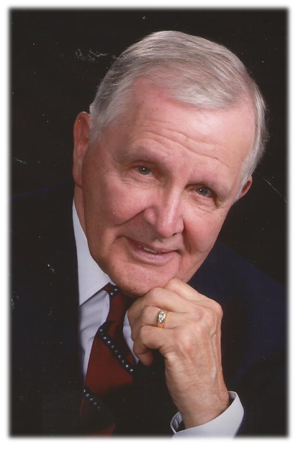Henry Clay: The Essential American
 by
by
David S. Heidler & Jeanne T. Heidler
Reviewed by Dr. Michael J. Deeb
| TITLE: | Henry Clay: The Essential American |
| AUTHOR: | David S. Heidler & Jeanne T. Heidler |
| ORDERING: | Random House |
David and Jeanne Heidler have applied their excellent scholarship to a biography of a giant political figure of the pre-Civil War era, Henry Clay. They begin their descriptive journey by leading us carefully through the geography of early Virginia and its western county of Kentucky.
Born there to a prosperous family, Henry Clay became an orphan early in his live. His mother remarried to a kindly man who placed Henry in a retail apprenticeship in the city of Richmond. As soon as a position opened he became a law clerk. As a young lawyer, he moved to Lexington, KY to join his mother new family in 1797. There he successfully became a competent and prosperous attorney. He not only gained the reputation of being an excellent orator and a determined attorney but also that of a gambler and a drinker. Nevertheless, he was able to arrange an advantageous marriage in 1799. Initially it might have been considered a marriage of convenience, but Henry and his wife Lucretia produced ten children and brought position and prosperity to the Clay family. The young family settled in a Lexington home he built and called Ashland. And so it would remain the Clay home for the remainder of his life.
In 1803, Henry Clay began an office holding career that would last until the end of his life. After a brief stop in the Kentucky legislature he was on his way to Washington. First came a brief appointment as a United States Senator. This was followed by repeated elections to Congress. There he served as Speaker almost from his arrival. He ended his career as a United States Senator in 1850.
During his time as Speaker, his reputation as a fair but stern manager of the Congress made him many friends, but a few enemies, too. He was a ‘hawk’ in foreign policy and a vigorous supporter of a protective tariff, a national bank and internal improvements. This put him at odds with those who espoused a different approach for the infant United States. But, Clay forged ahead with determination and frequent success.
He was convinced that the best route for the infant country was to strengthen it’s manufacturing, improve its roads and ports and to support the building of canals and railroads. The acquisition of new lands to the west and southwest to attract immigration was key to his program as well. So he supported a strong currency and thus a national banking system controlled by the central government. He believed that taxes placed on imports would encourage American investment in manufacturing; that internal improvements paid for by tariff income would aid all sections of the new country.
His ambition went beyond this however. He arranged to be part of the American team of negotiators sent to Europe to end the war of 1812. During that assignment, he and John Quincy Adams developed a dislike for one another. Later, with his eye on the White House, Clay tried to obtain the appointment as Secretary Of State in the Monroe administration. This post was denied him and was given instead to his rival, John Quincy Adams. At the next presidential election, Clay found he was locked in a three-way deadlock with Adams, himself and Andrew Jackson. In return for Clay’s support Adams made him his Secretary of State. Jackson defeated Adams in the next election and Clay returned to the legislature this time with an appointment to the United State Senate.
In opposition to Andrew Jackson’s program Clay was instrumental in the formation of a new opposition political party called the Whigs. In 1844, Clay was expected to win the White House only to be defeated by James. K. Polk of Tennessee, in an upset. Clay would not again become his party candidate for that honor.
Three men dominated the national scene after Jackson left the White House in 1836; Calhoun of the south, Webster of the northeast and Clay from the West. Compared to these men, all others in Washington were minor characters. Interestingly, all three walked off the center stage at the same time. The Compromise of 1850 marked the last time these men would use their great legislative skills and oratory to pull the country back from the brink of secession and possibly war. Henry Clay would die soon after. The other two would follow shortly.
Clay’s last speech in the Senate was before a packed chamber. His long speech in favor of the compromise of 1850 exhausted a body already ill. He returned to his room at the National Hotel and within weeks resigned from the Senate. He stayed in Washington in order to argue several cases before Supreme Court. He was till a lawyer and was anxious to add the fees so earned to his estate. But, on June 29th of 1852 he died. Clay was the first American citizen to lie in state at the Capitol.
The Heidlers present a birds-eye view of what architects of the Union like Clay did as they interacted in early nineteenth century United States. Readers are like mice hidden in the corners of all the Washington rooms when important decisions were made. Of course, Clay was the lead actor throughout the period and lead most of the important action in Washington. He was often the catalyst, too. The manner in which the Heidlers introduced and used the remainder of the Washington cast was riveting and brought the reader to a new understanding of the dynamics of those days.
“Henry Clay: The Essential American could serve as an American History text for the period covering 1790 to 1850. This cannot be said for any other biography of an other political figure of that period.
Reviewed by: Dr. Michael J. Deeb. Teacher of American History and author of Civil War era novels: Duty and Honor: Duty Accomplished: and Honor Restored.


 A Great Read! I couldn’t put this book down once I got started. The detail was great and I really like the main character, Michael. Knowing that so much research went into this book made it exciting to read!
A Great Read! I couldn’t put this book down once I got started. The detail was great and I really like the main character, Michael. Knowing that so much research went into this book made it exciting to read!